15th Jun 2022
Diagnosed With a Thyroid Condition? 10 Steps to Get You Started
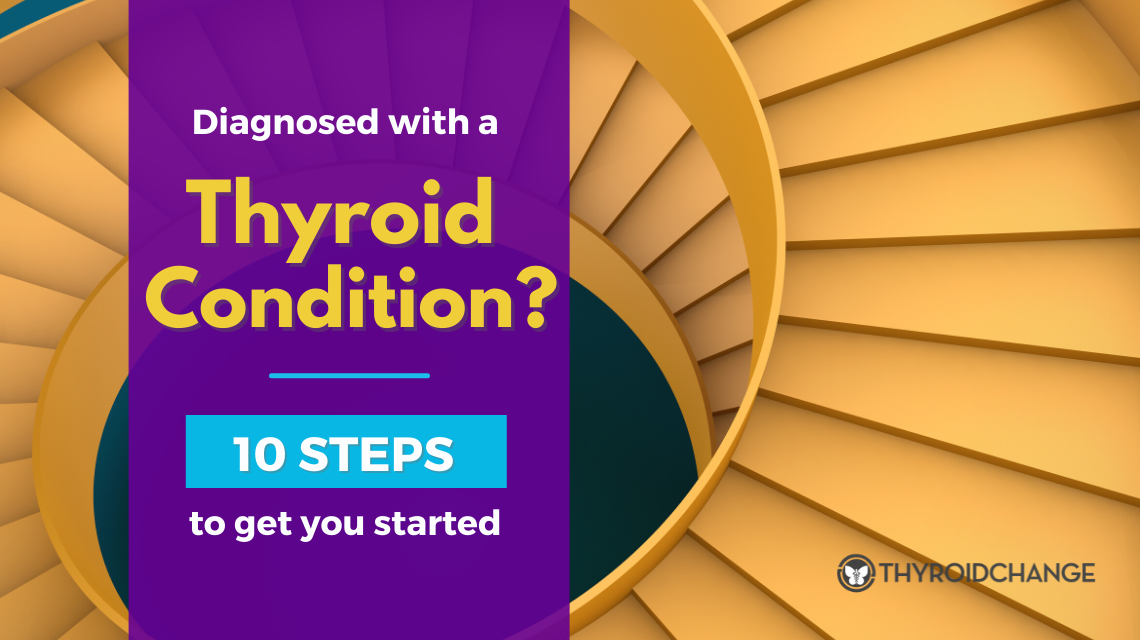
What You'll Learn:
- Where to start if you’ve been recently diagnosed with a thyroid condition
- Support and encouragement from a fellow thyroid patient and thyroid health advocate
- Practical, lifestyle tips so you can thrive and not just survive
- A printable checklist for getting the most out of your thyroid journey back to health
Pursuing proper treatment and an overall healthy lifestyle that includes eating well and exercising can help you manage a thyroid condition. But what else can you do to live well with and thrive with your condition? The information can be overwhelming and Annabel Bateman, thyroid health advocate and author, has created this guide to walk you through essential lifestyle tips once you have been diagnosed.
You’ve just been diagnosed with Hashimoto’s or Graves’ disease, hypo- or hyperthyroidism, or another thyroid condition…what do you do next?
I get it, you head to Google and start researching. Then it gets all so overwhelming. You’re already feeling exhausted and foggy. It just seems so hard. I was diagnosed back in 1996, before the Internet, but I know if I were diagnosed now, I’d head online first for sure, and like you, would probably end up confused.
So, let’s slow down. In this article, I go over ten steps to get you started now that you have a thyroid condition.
But first…Please make sure you know what is actually wrong with your thyroid.
Do you have an autoimmune disease or not? It’s important to understand what type of thyroid condition you have.
It’s very common for people to not know what’s really going on. I’ve heard people say things like “I don’t know if I have Hashimoto’s, I just have the type that makes you fat”. Or, “I just take a pill, but I’m not sure what’s really wrong. My doctor said to just take the medication and that was all I could do.” Knowledge is power.
While these ten steps apply across the board, when it comes to the details of how you manage your health, you need to know what’s really going on for you.
______
10 Steps to Get You Started
Thyroid health is complex. It’s not linear, so while there is some logic to these ten steps, they aren’t strictly linear. Some things will overlap, some are quick things to do, while others will take a lifetime to work through.
1. Take a breath. You don’t have to deal with this all at once.
You don’t have to deal with everything all at once. This is a marathon, not a sprint. You live with your thyroid condition forever, so it’s helpful to take a long-term perspective from the outset.
You’re going to find lots of information and you don’t have to do it all or all at once.
You can be unhurried, you can be undaunted, you can stop and take a breath. I know this is really hard to do, because those of us with thyroid conditions, particularly autoimmune ones, often tend to have personalities where we’re not very good at stopping.
If you can start with this long-term approach, it will make your life much easier in the long run.
2. Acknowledge that you have a long-term health issue.
When you’ve been diagnosed with a thyroid condition, you’re in it for the long haul.
The thyroid gland is so critical to pretty much every other system in your body. It impacts your brain health, your gut health, your cardiovascular health, your nervous system, it impacts everything. You cannot ignore your thyroid health. You can’t take a ‘set and forget’ approach either. You do have to take an active role in your thyroid health management.
This can take a bit of time to get your head around. Living with a chronic illness has a grieving process. That’s really normal. Strangely, this leads to the next step…
3. Have HOPE.
Yes, this is a life-long condition. No, there isn’t a quick ‘fix’.
BUT there are so many things you can do to manage your health, to start to feel better, and to get on with your life.
If you don’t have hope (yet), that’s okay. This is difficult and emotional. Please don’t take this as a negative though. You don’t have to deal with it all at once, but you do have to deal with it. There are so many things that you can do.
If you don’t have hope that you can feel better, I’m happy to lend you some of my hope. I’ve borrowed other people’s hope before. I’ve had health practitioners that have said, “It’s okay Annabel, you can feel better. I know you can get better.”
I borrowed their faith, if you want to put it that way. I borrowed their hope for myself so that I would feel better, and I did. And I’m happy to lend you some until you feel it for yourself.
4. Know that it’s a journey where you are the driver, not the passenger.
“It’s a journey” can sound a bit naff, but I haven’t come up with a better word, and it’s true! Living with a thyroid condition isn’t a straight road, freeway journey. It’s often a back-roads, twisted, dead-end, and U-turn journey.
You are the driver in this journey of yours though, not the passenger. You get to lead your own journey and take responsibility for the direction you go.
No one cares about your health as much as you do. Yes, you need an excellent health team, but you need to take responsibility for your health and not abdicate it to your health team. This is deeply empowering.
5. Start building your thyroid support team.
Part of taking responsibility is being deliberate about who is in your thyroid support team. Start with finding a doctor (usually an integrative/holistic doctor) who really understands the complexities of thyroid health. This is a great guide for finding a good doctor who runs a full thyroid panel and prescribes treatment options (important). So, if you don’t have a qualified doctor yet, start there.
Other members of your thyroid support team may include:
- Allied health practitioners (e.g. naturopaths, Chinese Medicine practitioners, nutritionists).
- Thyroid experts – There are some great people to follow online, read their books, listen to their podcasts.
- Online support groups – Look for ones that focus on positive and practical support and don’t engage in medical diagnosis. Some examples are found here.
- Personal support – Family and friends can be a key support system for you over the years.
6. Start recording.
Get a journal and a folder. In your journal start recording food, mood, chemical triggers, activities, stress levels and start paying attention to what you notice. In your folder keep all blood test results, notes from medical appointments, etc.
Keeping a record of these things is super helpful when it comes to taking this information to medical appointments and in identifying what’s working and not working for you.
7. Forgive.
Forgive yourself, your doctors, your body for not knowing better in the past. Now you know yourself better, so you can do better.
It’s easy to look back and think, “Why didn’t my doctors listen to me? I wish I had found a new doctor. I wish I had changed my diet earlier. I wish I hadn’t been so wiped out for my family”. There are lots of things you can look back on and wish were different.
Something to understand with thyroid problems is that it’s an emotional journey as well as a physical one. Being able to deal with those hurts, traumas and even past abuse is important in being able to move forward.
Forgive yourself, forgive others around you, and focus on the future, not on the past.
Once you know better, you can do better. Don’t live in the past and worry about what could have or should have or, what might have been.
Focus on the future and what will be and what can be.
8. Ask for help.
Are you good at asking for help? Are you more of an independent type that prefers to go it alone?
You can’t do thyroid problems alone.
This goes back to having that support team. You have to learn how to get help and ask for help. Stop trying to do everything yourself. That’s stressful, and stress is unhelpful to the thyroid.
Perhaps you could outsource your ironing, or your cleaning, or your shopping, or it could be asking for help to find a great acupuncturist. Ask a friend who is managing their thyroid health well and ask what’s working for them? You probably like to help others, so let others help you, too.
9. Work through the checklist.
The things in this checklist are the core of what we need to be doing over time, or at least investigating and trying to see if they work for you. These are things to explore over years. They are factors that need to become part of a thyroid-friendly lifestyle. It’s not possible to do all of these things at once but they are all important.
Here is a printable checklist.
- Root causes. You’ll want to explore the common reasons people end up with a thyroid condition. There isn’t a ‘test’ to know how you got yours, but it’s helpful to know the common triggers so you can try to avoid them in the future. Common factors include genetics, dietary triggers, chemical triggers, pathogens, stress/trauma, and lifestyle factors.
- Mindset. Having a long term, positive and inquisitive mindset is critical to your long term thyroid health. It will help you to handle those ups and downs.
- Removing/reducing/managing stress. Stress has a massive impact on your body and on your thyroid. Stress causes inflammation, too. So, if your thyroid condition is autoimmune, you’ll need to be reducing inflammation every way you can. Learn the ways you best unwind.
- Emotional health. There is grief, there is pain, there is hurt, there is frustration, there is disappointment. You can’t just push things down and pretend that they don’t exist because that has an impact on your ability to move forward. Deal with the emotional aspect of having a thyroid condition.
- Personality. Work with your personality. If you’re someone that likes to be in control, control what you can control (and learn to let go of the things you can’t). If you have a high-achieving, driven personality, be driven to be the best thyroid patient that you can be! If you’re an all-or-nothing type person, then you might want to tackle some of these things a little bit more head on. Whereas, if you’re a bit more laid back, just do one thing at a time. Whatever your personality is, play to your strengths.
- Sleep. Sleep is absolutely critical. You can’t have a thriving thyroid without it. You have to learn how to get quality and quantity sleep.
- Food/gut. Many people, when taking a holistic approach to their thyroid health, start with making dietary changes. Many find a paleo-style diet helpful in the long-term, but it will end up being different for everyone. Food is not at the top of the list, however. While it’s important to remove inflammatory foods and eat a nutrient-rich diet, you can’t “just” make the dietary changes. The other things on the list are important, too. It might start with food, but it can’t end there.
- Medication. Some people will need medication to manage their thyroid health. Taking a holistic or integrative approach to managing your thyroid health doesn’t mean you don’t take medication. This is something you need to work with your doctor on. It’s helpful to know that there are a number of different thyroid medications, and it can take many years to find what works best for you, so don’t give up.
- Supplements. It’s common for those with thyroid conditions to need additional supplementation. You’ll need to work with a professional to test for any nutritional deficiencies and supplement for those. Most with autoimmune thyroid conditions will be vitamin D deficient, so please make sure you have this tested.
- Reduce your toxic load. Toxic chemicals can be a trigger for autoimmune thyroid conditions, so proactively removing chemicals from your food, water, personal care products, cleaning products, perfumes, etc. is helpful. While you can’t control all of what you’re exposed to, you can control so much of what you put on and in your body.
- Exercise. Movement is important. You’ll need to work out what is a good balance for you of enough, but not too much, exercise. Many people find that a lot of high intensity exercise causes injury and impedes exercise recovery. You’ll need to find your sweet spot.
- Support. As discussed above, you’ll need support over the journey with different types of support at different times. Also consider that down the road, you may be able to support others going through what you are, too. The more we share our experiences, the more we can help others.
10. Keep it super simple (K.I.S.S).
Start with one thing. One thing at a time. Depending on your symptoms and how you feel, it might matter where you start, but more important is that you don’t become paralyzed with overwhelm and don’t start at all. Start somewhere.
Perhaps it’s removing your plastic food containers, or trying a gluten-free diet. Maybe it’s buying a journal and starting to record what’s going on in your body. Maybe it’s finding a good integrative doctor that can be in this for the long haul with you. Just pick your one thing. Then you can move on to another thing.
Remember, it’s a marathon, not a sprint.
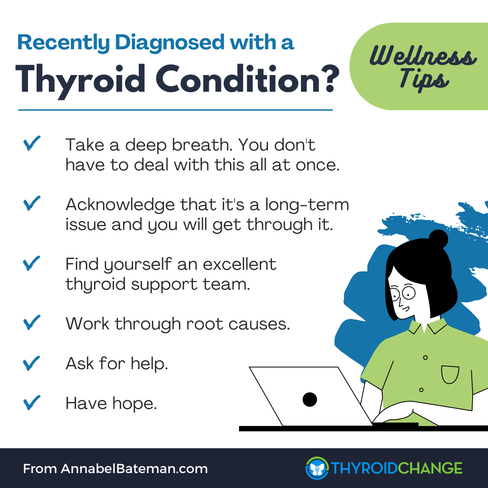
About the Contributor
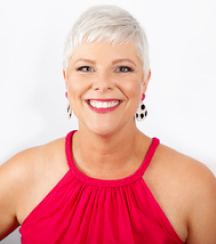
Annabel Bateman is a Hashimoto’s patient and passionate thyroid health advocate. She has learnt in 25+ years of living with Hashimoto’s that the key is developing a lifestyle that supports (and doesn’t stress) her thyroid health. Annabel is the author of the best-selling cookbook, What Annabel Cooks: Real Food That Will Make You Flourish and she hosts a successful podcast, Let’s Talk Thyroid which seeks to spread thyroid awareness and information.
Her next book is Kiss & Makeup With Your Thyroid: Your Positive and Practical Lifestyle Approach to Love Your Thyroid Back to Health which should hit the shelves in mid-2022.
SIMILAR ARTICLES
More like this...
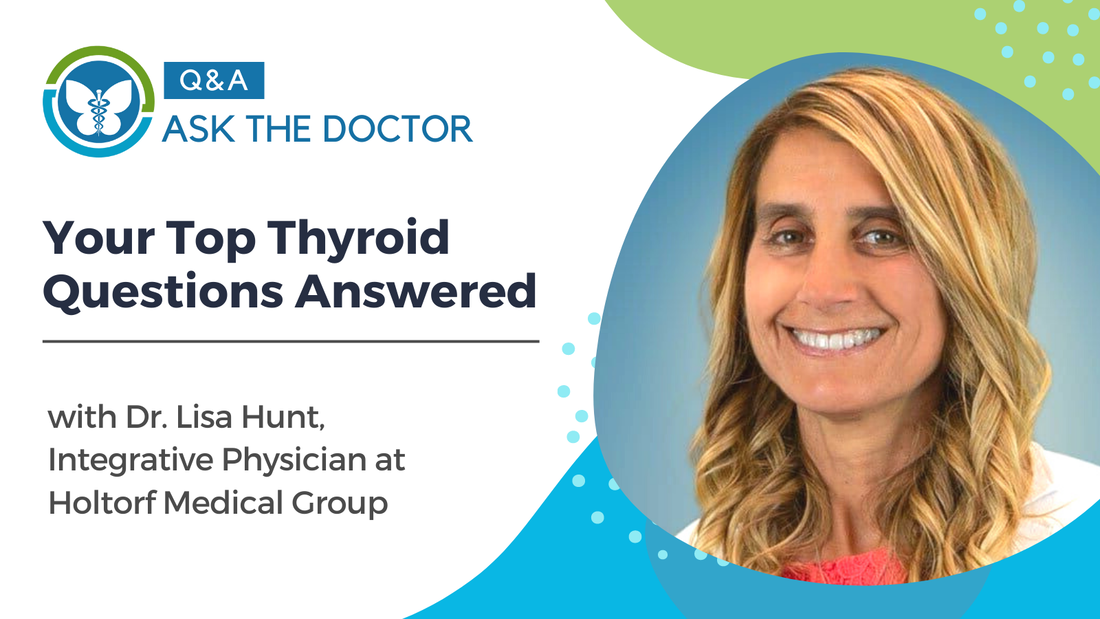
15th Jun 2022
Your Top Thyroid Questions Answered: Q&A with Dr. Lisa Hunt of Holtorf Medical Group
I had the pleasure of speaking with Lisa Hunt, D.O., an integrative physician at Holtorf Medical Group (www.holtorfmed.com) in El Segundo, CA a short while ago. I polled my audience and your top thyroid-related questions are answered here by Dr. Hunt. Dr. Hunt is a board-certified integrative physician and has extensive experience in thyroid health, hormone replacement, immune dysfunction and chronic conditions.
Read Article
15th Jun 2022
11 Tips On How To Take Your Thyroid Medication Properly
Are you taking your thyroid hormone replacement medication correctly? Did you know that how and when you take your thyroid medication can affect your ability to absorb the necessary hormone properly? In the article below, I investigate the factors that contribute to correctly (or incorrectly) taking thyroid replacement hormone and on how thyroid patients can get the most out of their medication.
Read Article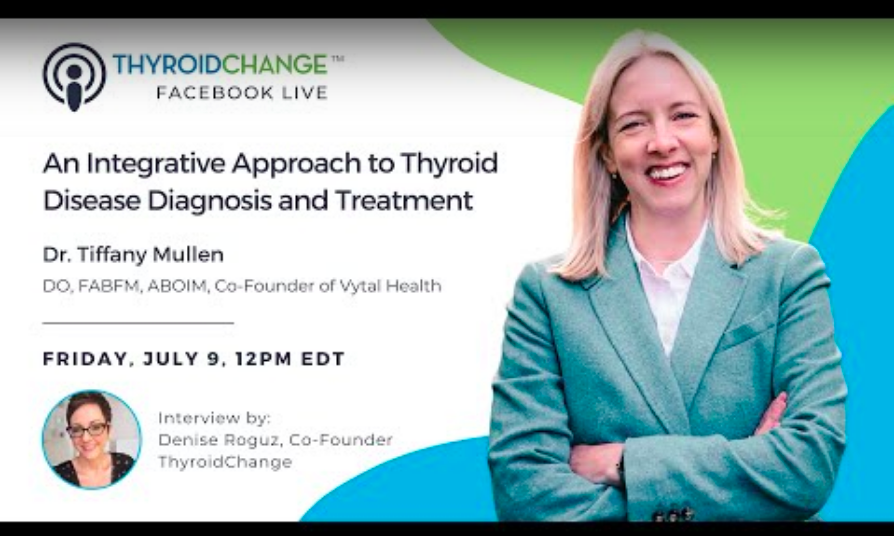
15th Jun 2022
Why Is Integrative Thyroid Care Essential? Q&A with Dr. Tiffany Mullen of Vytal Health
Tune in and listen to Denise Roguz of ThyroidChange interview integrative practitioner and hormone expert, Dr. Tiffany Mullen, DO, FABFM, ABOIM, and Co-Founder of integrative telemedicine company, Vytal Health (www.vytalhealth.com). You will learn why functional medicine is essential for many thyroid patients and how can it make a difference for you. The audience’s pressing thyroid questions are answered by Dr. Mullen at the end of the talk. What would you like to know?
Read Article